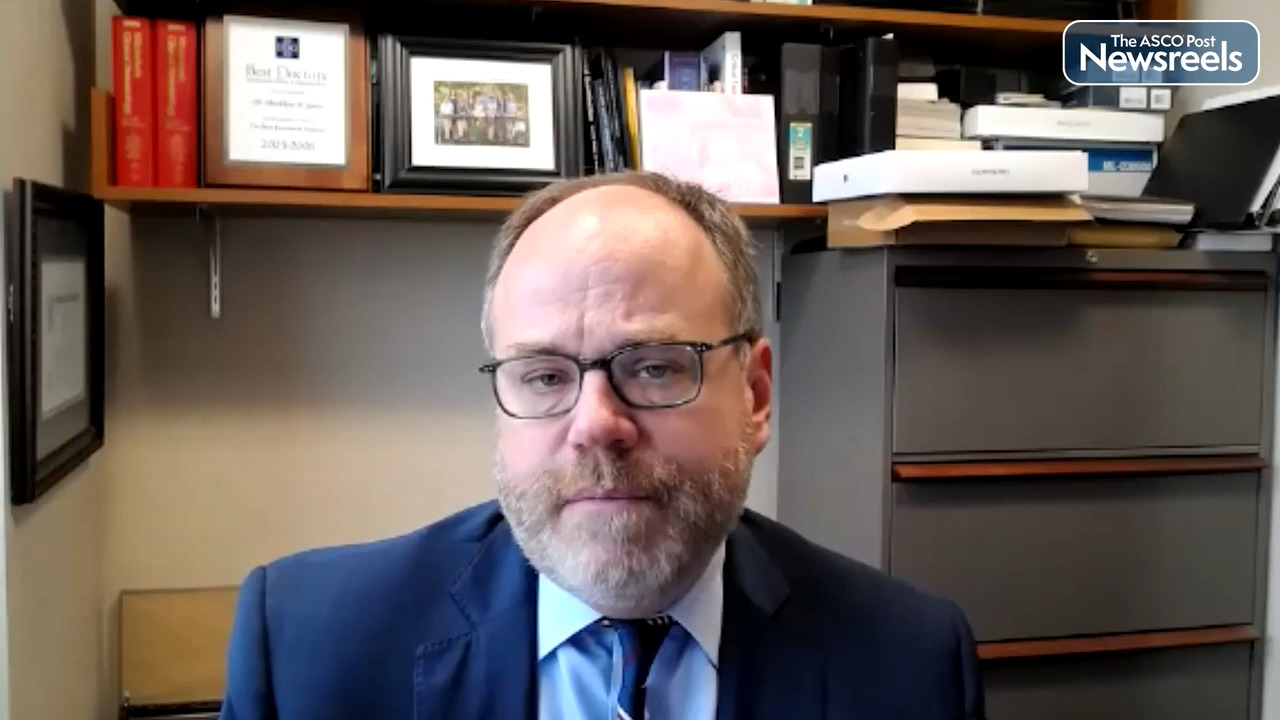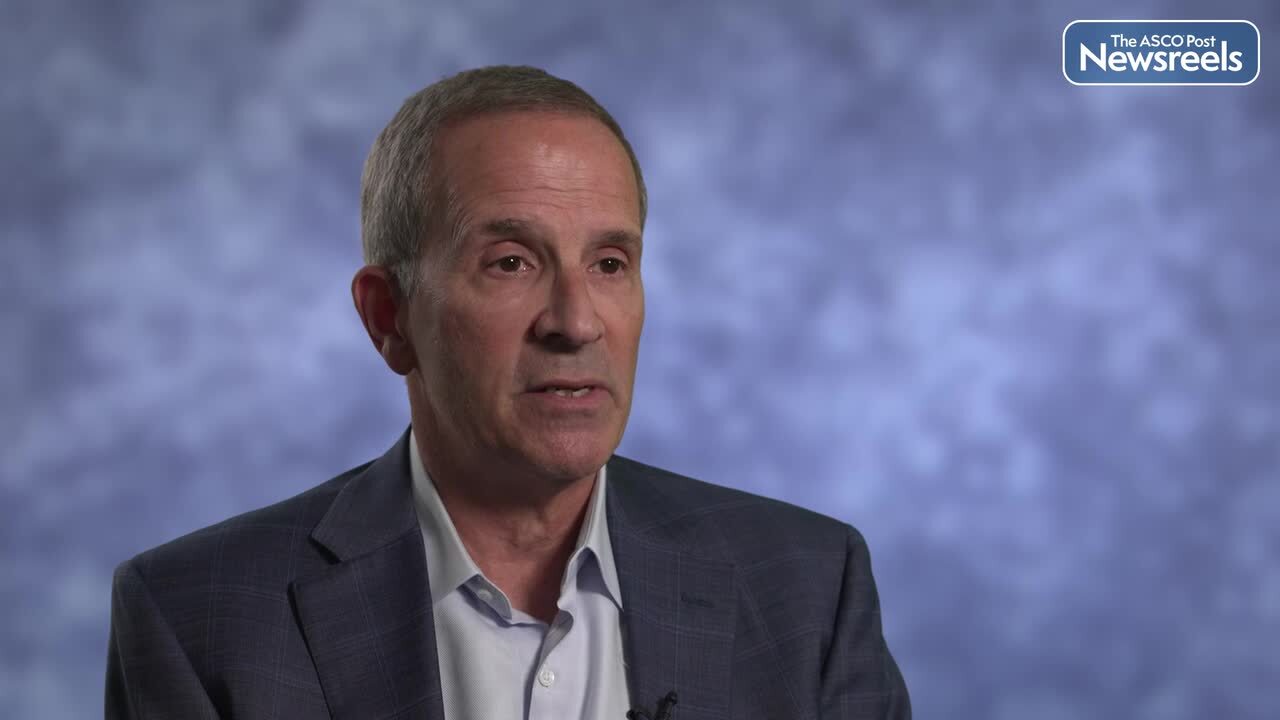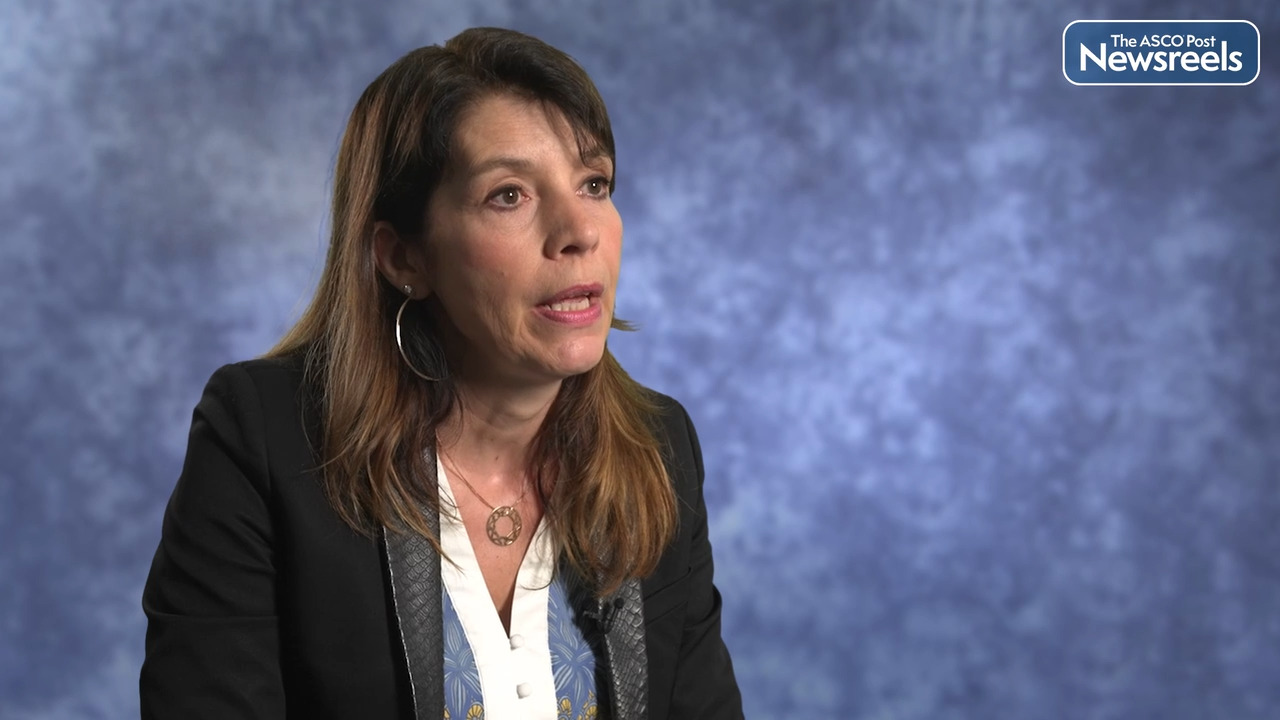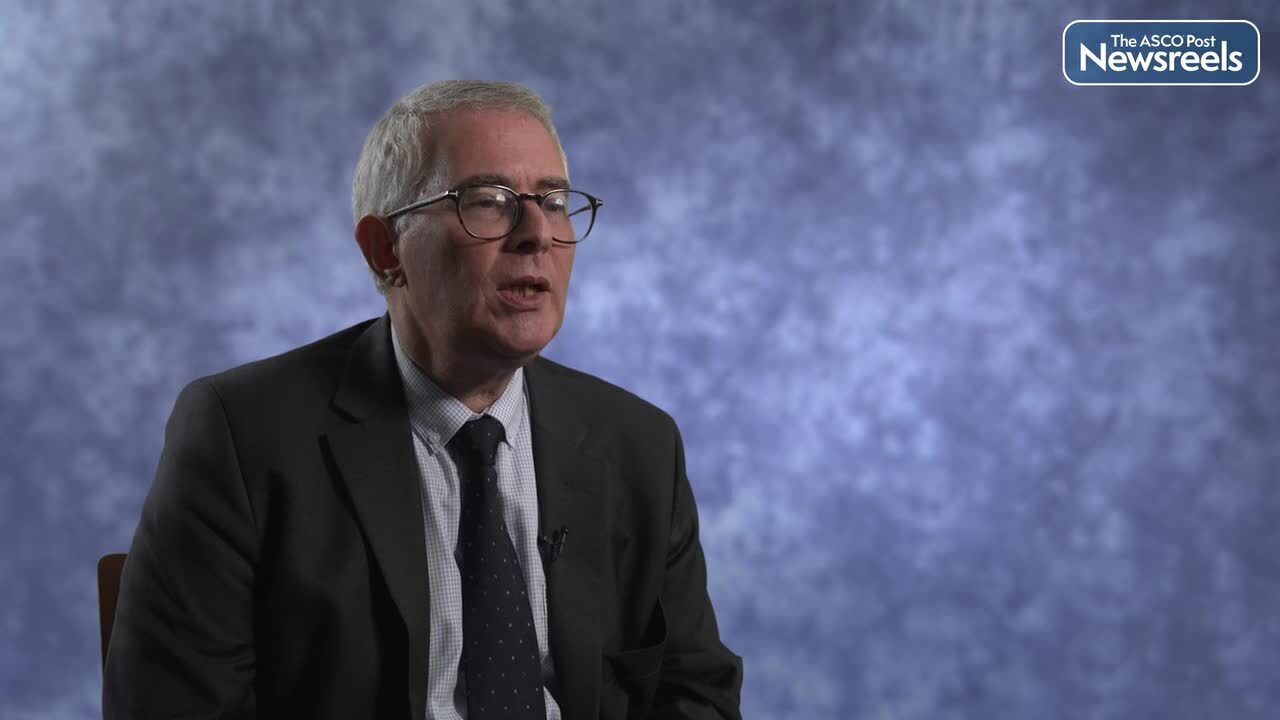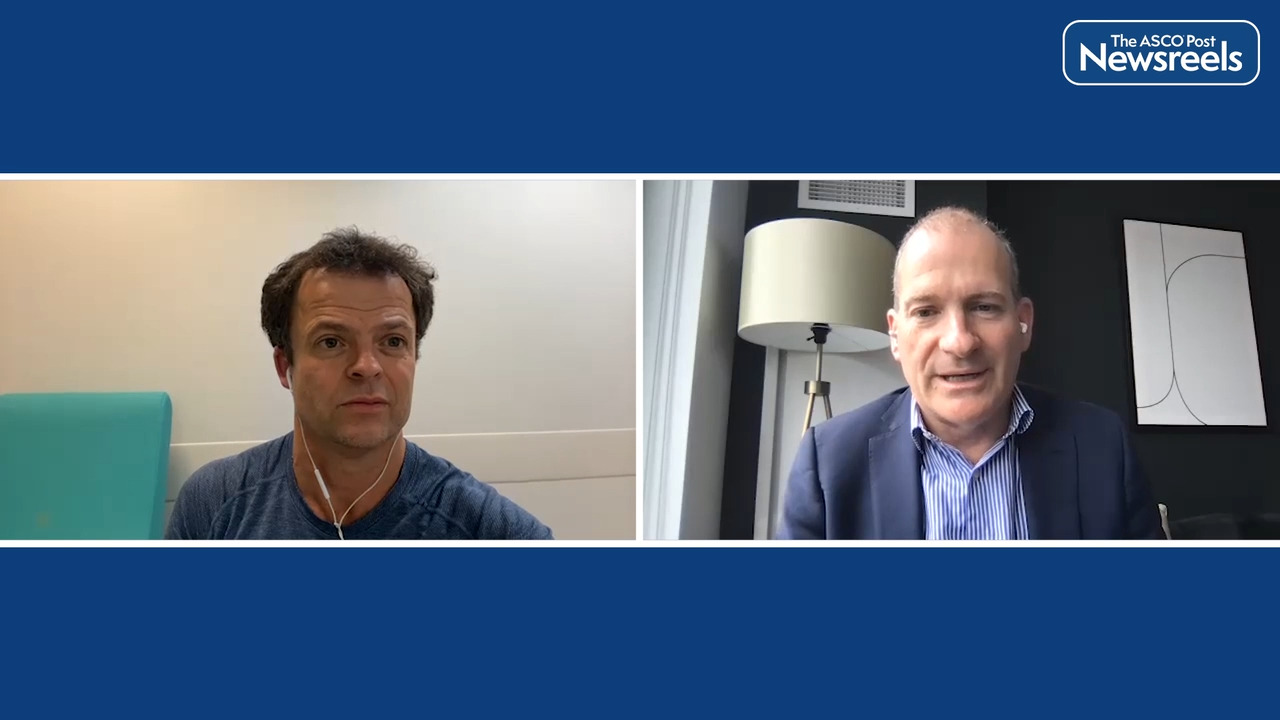Sapna P. Patel, MD, on Melanoma: New Data on Pembrolizumab, Adjuvant vs Neoadjuvant Plus Adjuvant
ESMO Congress 2022
Sapna P. Patel, MD, of The University of Texas MD Anderson Cancer Center, discusses the latest findings from the SWOG S1801 trial, which showed that using single-agent pembrolizumab as neoadjuvant therapy improved event-free survival compared to adjuvant therapy in high-risk resectable stage III–IV melanoma (Abstract LBA6).
Transcript
Disclaimer: This video transcript has not been proofread or edited and may contain errors.
The rationale behind neoadjuvant immunotherapy for melanoma is that cancer comes in contact with T cells that are inside the tumor. If you remove the tumor, you remove those T cells with it. On the other hand, if you give neoadjuvant therapy while the tumor is still in place and those T cells, you end up generating a larger immune response than if you give the same treatment after the tumor is removed. With that in mind, we designed the SWOG S1801 phase II trial. The study was a randomized one-to-one study for participants with stage IIIB to IV resectable melanoma. Participants on the adjuvant arm were randomized to surgery first followed by 18 doses of adjuvant pembrolizumab, flat-dosed every three weeks. Participants on the neoadjuvant arm received 3 doses of pembrolizumab followed by surgery, and then 15 doses of adjuvant pembrolizumab.
Neoadjuvant therapy with pembrolizumab followed by adjuvant pembrolizumab improves event-free survival in resectable melanoma. Toxicities were well-managed and no new safety signals emerged. In fact, the use of neoadjuvant pembrolizumab did not lead to an increase in surgery events. Compared to the same therapy given entirely after surgery, the use of neoadjuvant pembrolizumab improves event-free survival in patients with resectable melanoma. The next steps for S1801 include central pathologic review on the neoadjuvant specimens to determine a correlation between pathologic response and clinical outcomes. Future neoadjuvant studies can consider S1801 as a benchmark and expand on deescalation of surgery protocols, deescalation of adjuvant therapy, or escalation of neoadjuvant or adjuvant regimens for those whose tumors do not respond.
The ASCO Post Staff
Matthew P. Goetz, MD, of Mayo Clinic, discusses recent data from the MONARCH 3 trial of patients with advanced hormone receptor–positive, HER2-negative breast cancer. The study, a second interim analysis, showed that longer overall survival was observed in both the intention-to-treat group as well as in the subgroup with visceral disease. However, neither met the threshold for statistical significance, and further analyses are planned when more data can be reported. (Abstract LBA15).
The ASCO Post Staff
Neal D. Shore, MD, of Carolina Urologic Research Center/Genesis Care, discusses new data from the ENACT trial, which showed that patients with prostate cancer and the RNA biomarkers PAM50 and AR-A were likely to have better outcomes with enzalutamide treatment. The results suggest that such RNA biomarkers may help to identify patients who may benefit from enzalutamide treatment compared with active surveillance (Abstract 1385P).
The ASCO Post Staff
Christelle de la Fouchardiere, MD, of France’s Centre Léon Bérard, discusses phase III findings from the PRODIGE 65–UCGI 36–GEMPAX UNICANCER study, which evaluated whether the combination of gemcitabine and paclitaxel improves overall survival compared with gemcitabine alone in patients with metastatic pancreatic ductal adenocarcinoma after FOLFIRINOX failure or intolerance (Abstract LBA60).
The ASCO Post Staff
Gérard Zalcman, MD, PhD, of France’s Bichat-Claude Bernard Hospital, Assistance Publique–Hôpitaux de Paris, discusses phase III results from the IFCT-1701 trial, which explored the questions of whether to administer nivolumab plus ipilimumab for 6 months or whether to prolong the treatment in patients with advanced non–small cell lung cancer (Abstract 972O).
The ASCO Post Staff
Thomas Powles, MD, PhD, of Barts Health NHS Trust, Queen Mary University of London, and Christopher Sweeney, MBBS, of Dana-Farber Cancer Institute, discuss two important phase III studies on renal cell cancer (RCC) presented at ESMO 2022: IMmotion010, which examined the efficacy and safety of atezolizumab vs placebo as adjuvant therapy in patients with RCC at increased risk of recurrence after nephrectomy; and CheckMate 914, which compared nivolumab monotherapy or nivolumab combined with ipilimumab vs placebo in patients with localized disease who underwent radical or partial nephrectomy and who are at high risk of relapse. (Abstract LBA4 & LBA66).
